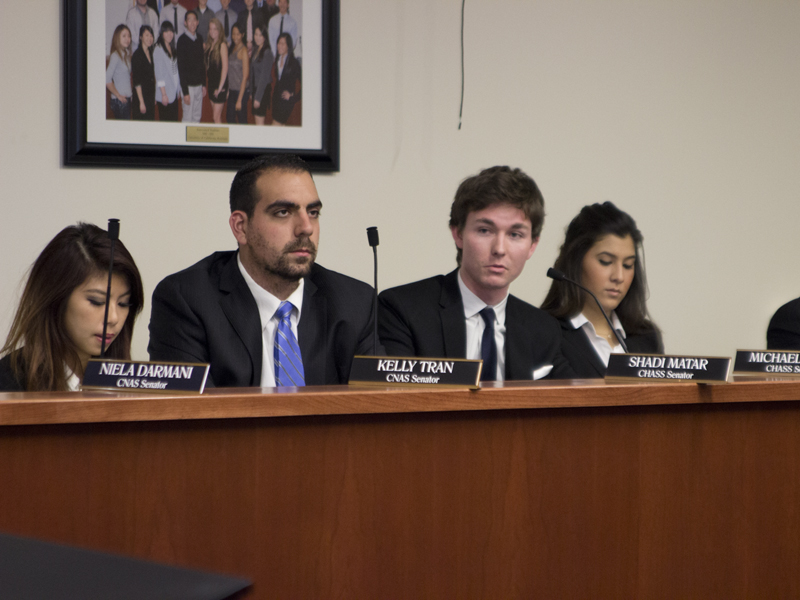
In last week’s ASUCR senate meeting, senators passed two bylaw changes, which aim to increase student participation in the community and outline the functions of the outreach committee. Members of ASUCR also discussed the possibility of rejoining the United States Student Association (USSA) — a national student-run organization that fights to increase accessibility for higher education — to take a more active role on student-related issues.
Outreach Director Mina Kato requested to change the Outreach Director Bylaw by raising the number of outreach committee members from seven to nine. She stated that the committee’s previous structure offers very limited opening spots to the general student body, with the outreach director and three other ASUCR senators occupying four out of the seven spots.
“The reason why I proposed this outreach bylaw … is specifically because I want to be more inclusive to the student body,” said Kato. “I want to provide more opportunities for students to get involved with outreach and ASUCR as a whole, specifically first-year and second-year students who are just out of high school and has a lot of background experiences within their high school.”
As for her second proposal, Kato suggested an additional bylaw that specifically explains the functions and responsibilities of the Outreach Funds Committee, entitled, “Marketing and Promotions Director Bylaw.”
“Before, the Outreach Funds Committee section was found only under the Finance chapter of the Bylaws (sic),” explained Kato. “This bylaw change will provide more clarity on the entire position of the Outreach Director (outreach funding and outreach programming) within the ASUCR bylaws.”
The senators unanimously passed the two bylaw proposals.
During the Special Reports portion of the meeting, four members from the Highlander Action Committee — a sub-committee under the External Affairs office — informed the student body of the committee’s intention to have UCR rejoin the USSA.
Committee member and USSA Minority Serving Institution Chair Nicole Rosales reported that UCR has created a huge national presence by mobilizing students through USSA campaigns across the country.
“We, as student board members, have a lot of power. We not only represent California, we represent the entire nation,” said Rosales. “The fact that we have four (USSA) board members from Riverside speaks something special … This is the right time for (UCR) to get back to the federal scale and actually have some voice, some movement and be a support to all (the) different things that affect students.”
Vice President of External Affairs Kareem Aref applauded the committee’s effort for organizing and bringing the three-day USSA Board conference to Riverside.
“(As the host), we have so much power to ask for what we want: to make a motion to officially rejoin USSA,” said Aref. “It’s just to make a statement that as an association, we support this organization (USSA) that does so much good for students across the nation.”
UCR allegedly backed out of USSA due to a lack of funding and decided to solely fund SOCC in 2012. According to Aref, nearly half of the funds in the ASUCR’s External Affairs office disappeared due to an unknown fraud in that year. Aref is currently investigating where the missing funds went.
The USSA conference was held at the Bear Cave on Nov. 22 to 24 from 9 a.m. to 6 p.m.
Highlights
CALPIRG Campus Organizer Mick Del Rosario announced the ongoing campus pledge drive and appealed to senators to support the organization.
LGBT representative Kelly Lai asked the senators’ support for an ongoing system-wide petition put forth by the UC Student-Workers Union Anti-Oppression Committee. The petition calls for the university to install restrooms accessible to all LGBT students and workers.
President Pro Tempore Aaron Johnson along with all CHASS senators met with CHASS Dean Stephen Cullenberg on Nov. 8 to discuss the potential hiring of additional advisors to accommodate the increasing student enrollment.
CNAS senators are pursuing joint funding between CNAS and the School of Medicine for the Health Professions Advising Center. They also discussed the integration of the English 1C requirement with a science course.








